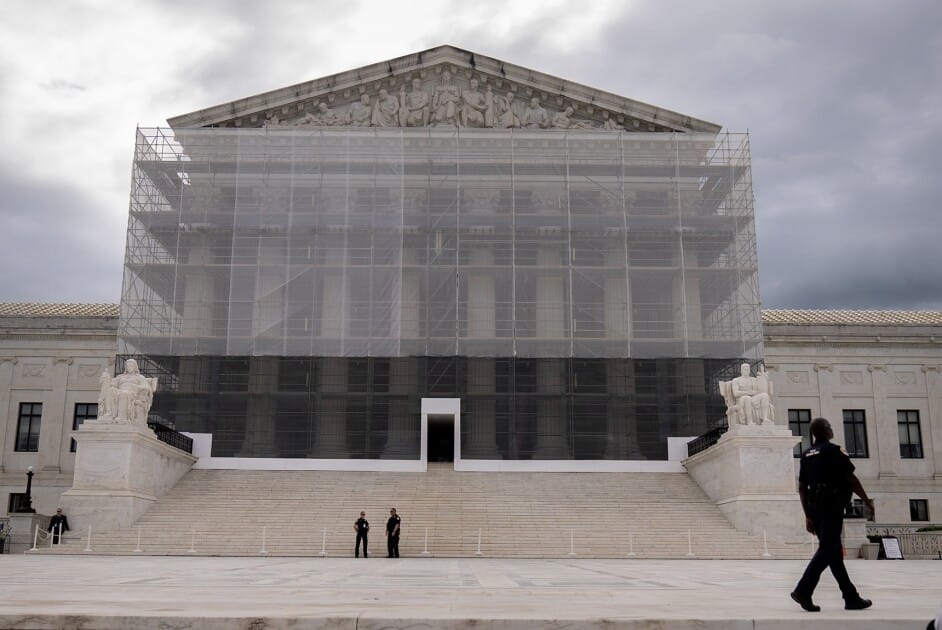The U.S. Supreme Court late Wednesday denied a request by South Carolina to pause a federal appeals court injunction allowing a 9th grade transgender boy to use school restrooms consistent with his gender identity while he challenges a state ban restricting that right.
Over the dissent of three justices in South Carolina v. Doe, the court said in a brief order that the denial was “not a ruling on the merits of the legal issues presented in the litigation. Rather, it is based on the standards applicable for obtaining emergency relief from this court.”
The court’s action comes amid a growing national debate over transgender rights in schools and at a time when the Supreme Court is receiving more appeals over issues such as gender-support plans for students who are gender-transitioning. In its new term that begins next month, the court will hear arguments in two cases involving transgender students’ participation in girls’ and women’s athletics.
The three dissenters in the South Carolina case were justices Clarence Thomas, Samuel A. Alito Jr., and Neil M. Gorsuch.
They did not write an opinion, but twice last term, Alito wrote dissents, joined by Thomas, when the court declined to take up cases involving a school district’s gender-identity support policies and a student who was barred by his school from wearing a T-shirt with the message, “There are only two genders.”
In each, Alito said the cases presented issues of “great importance” for the nation’s schools and students.
A student’s challenge to a state budget provision
The South Carolina case involves a 9th grader identified as John Doe of the Berkeley County school district, who challenged a 2024 state budget measure requiring students to use restrooms based on their sex assigned at birth. The measure was renewed in June for the 2025-26 state budget.
The student argued the measure conflicts with a prevailing precedent of the U.S. Court of Appeals for the 4th Circuit, in Richmond, Va., which held in 2020 that schools must allow transgender students to use restrooms consistent with their gender identity under Title IX—the federal law banning sex discrimination in schools—and the 14th Amendment’s equal-protection clause. That 2020 decision stemmed from the case of Gavin Grimm, a transgender student who sued his Virginia school district in the mid-2010s.
In August, a 4th Circuit panel granted a preliminary injunction blocking the South Carolina ban, ruling that Doe was likely to succeed on the merits of his case and that “Grimm remains the law of this circuit.”
South Carolina went to the high court with an emergency request to pause the injunction and keep Doe out of boys’ restrooms.
The state said “Grimm was wrongly decided and should (and may soon) be overturned,” and that the school district was in “a rock and a hard place” between the 4th Circuit precedent and the Trump administration’s interpretation of Title IX requiring school districts to make students use restrooms matching their sex assigned at birth.
Indiana and 23 other Republican-led states filed a friend-of-the-court brief supporting South Carolina.
Lawyers for Doe told the high court in a brief that, among other reasons, the injunction “applies only to one student at one school” and “no student has ever complained about sharing a boys’ restroom with John.”
A Supreme Court decision to pause the injunction would “irreparably harm John, … whose education and well-being depend on his ability to use boys’ restrooms,” Doe’s brief said.
2025-09-10 22:37:06
Source link

